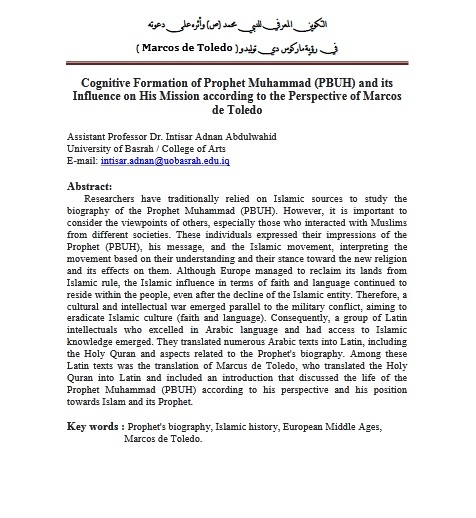Cognitive Formation of Prophet Muhammad (PBUH) and its Influence on His Mission according to the Perspective of Marcos de Toledo
Keywords:
السيرة النبوية, التاريخ الإسلامي, العصور الوسطى الأوربية, ماركوس دي توليدوAbstract
Researchers have traditionally relied on Islamic sources to study the biography of the Prophet Muhammad (PBUH). However, it is important to consider the viewpoints of others, especially those who interacted with Muslims from different societies. These individuals expressed their impressions of the Prophet (PBUH), his message, and the Islamic movement, interpreting the movement based on their understanding and their stance toward the new religion and its effects on them. Although Europe managed to reclaim its lands from Islamic rule, the Islamic influence in terms of faith and language continued to reside within the people, even after the decline of the Islamic entity. Therefore, a cultural and intellectual war emerged parallel to the military conflict, aiming to eradicate Islamic culture (faith and language). Consequently, a group of Latin intellectuals who excelled in Arabic language and had access to Islamic knowledge emerged. They translated numerous Arabic texts into Latin, including the Holy Quran and aspects related to the Prophet's biography. Among these Latin texts was the translation of Marcus de Toledo, who translated the Holy Quran into Latin and included an introduction that discussed the life of the Prophet Muhammad (PBUH) according to his perspective and his position towards Islam and its Prophet.




